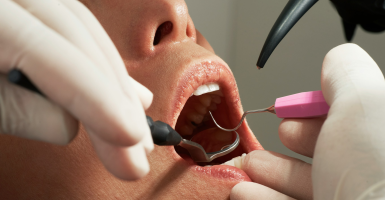Receding gums, also known as gingival recession, is a common dental problem that affects millions of people around the world. It occurs when the gums begin to pull away from the teeth, exposing the roots and leaving them vulnerable to decay and other oral health issues. In this article, we’ll explore the causes, symptoms, and treatment options for receding gums.
Causes of Receding Gums
There are several causes of receding gums, including:
- Gum Disease: Gum disease is the most common cause of receding gums. When plaque and bacteria build up on your teeth and gums, they can cause inflammation and infection, which can damage your gums and cause them to recede.
- Brushing Too Hard: Brushing your teeth too hard or using a hard-bristled toothbrush can cause your gums to recede.
- Genetics: Some people are more prone to receding gums due to their genetic makeup.
- Hormonal Changes: Hormonal changes that occur during pregnancy, puberty, and menopause can make your gums more sensitive and prone to recession.
Symptoms of Receding Gums
The most common symptom of receding gums is the appearance of longer teeth. Other symptoms may include:
- Sensitivity to hot and cold temperatures
- Discoloration of the teeth
- Bad breath
- Swollen or bleeding gums
- Tooth decay or cavities
Treatment Options for Receding Gums
The treatment for receding gums depends on the severity of the condition. In mild cases, your dentist may recommend a professional cleaning to remove plaque and tartar from your teeth and gums. They may also suggest changes to your oral hygiene routine, such as using a soft-bristled toothbrush and practicing proper brushing and flossing techniques.
In more severe cases, your dentist may recommend gum graft surgery, where tissue is taken from another part of your mouth and grafted onto the affected area to help cover the exposed roots. This can help reduce sensitivity and prevent further damage to your gums and teeth.
Preventing Receding Gums
Preventing receding gums is key to maintaining good oral health. Here are some tips to help prevent receding gums:
- Brush your teeth twice a day using a soft-bristled toothbrush and fluoride toothpaste.
- Floss at least once a day to remove plaque and bacteria from between your teeth and gums.
- Visit your dentist regularly for professional cleanings and checkups.
- Eat a healthy diet that is low in sugar and high in fiber.
- Avoid smoking and using tobacco products.
Receding gums is a common dental problem that can be prevented with good oral hygiene practices and regular dental checkups. If you are experiencing symptoms of receding gums, be sure to see us as soon as possible to prevent further damage to your gums and teeth.











